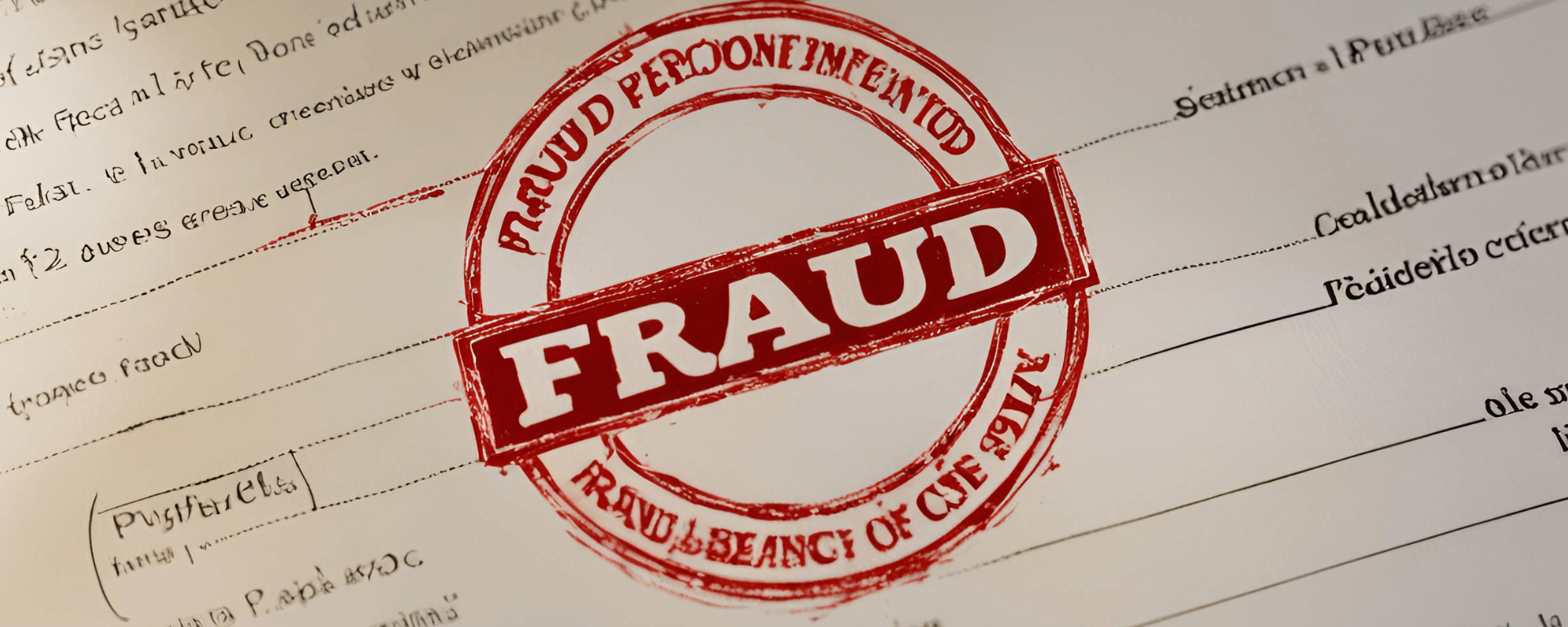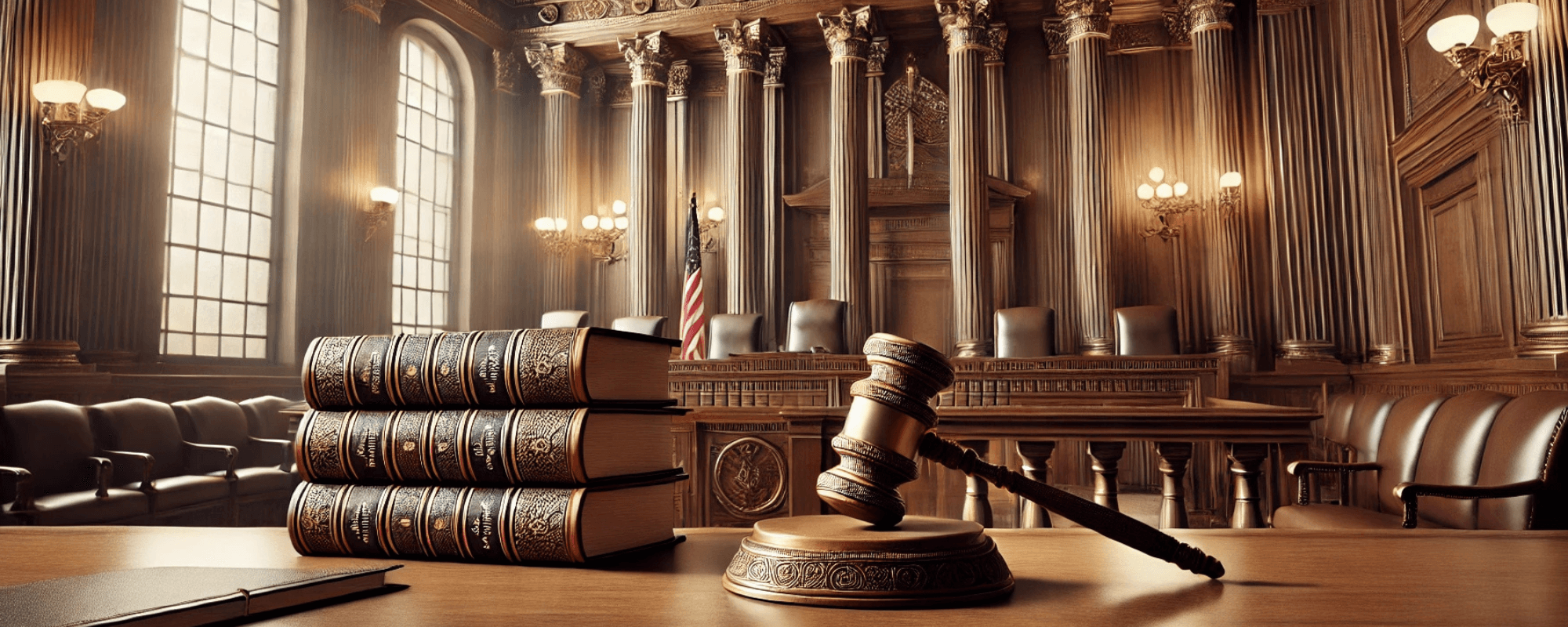USPTO Terminates 3,100 Patent Applications Due to Signature Fraud
Takeaway: The USPTO terminated 3,100 Chinese-origin patent applications due to fraudulent attorney/agent signatures, highlighting the need for applicants to work with licensed representatives and protect against fraud.

On October 3, the U.S. Patent and Trademark Office (“USPTO”) terminated around 3,100 patent applications due to fraudulent use of “S-signatures” associated with practitioner Jie Yang, who discovered in 2022 that her signature was being used without authorization.
The fraudulent filings were linked to Dr. Yu “Mark” Wang, a non-registered practitioner who misrepresented himself and used Yang’s credentials to submit patent documents. While Yang cooperated fully with the investigation and was reprimanded, Wang did not respond to a USPTO inquiry, resulting in the termination of the applications. USPTO Director Kathi Vidal emphasized the importance of working with licensed representatives and safeguarding credentials to prevent fraud.
Is Your Trademark Contact Information Current for your Trademark Registration?
Takeaway: This is a reminder that if you receive any correspondence from the Trademark Office or Trademark Trial and Appeal Board (“TTAB”), please be sure to notify us..

If a third party files a cancellation action against your trademark registration, the TTAB will only notify the registrant. That means you! The Petition to Cancel does not have to be served on the attorney of record. The only way a registrant will receive notice of this type of proceeding is if their contact information is listed at the Trademark Office. If a Response to a Petition to Cancel is not filed in a timely manner, the result will be a default judgment and your trademark registration will be cancelled. It is vitally important that all trademark owners make sure their contact information for their trademark registration(s) is current. If you would like to make sure the correct contact information is listed for your registration, please let us know.
Federal Circuit Revives Private Right to Sue for False Patent Marking Under the Lanham Act
Takeaway: The Federal Circuit’s ruling in Crocs, Inc. v. Effervescent, Inc. revives private parties’ ability to pursue false advertising claims under the Lanham Act for misleading representations about patented materials, emphasizing the importance of truthful marketing and proper patent marking.

Before the America Invents Act (“AIA”), individuals could file qui tam claims for false patent marking and receive a penalty payment. However, the AIA restricted these claims, allowing only the federal government and competitors to bring them. In a recent ruling on October 4, 2024, in the case of Crocs, Inc. v. Effervescent, Inc., the Federal Circuit has reintroduced the possibility for private parties to pursue false marking claims under the Lanham Act’s unfair competition and false advertising provisions. The Court determined that a claim stating a product is made from “patented” material can mislead consumers about its qualities and can lead to liability under Section 43(a) of the Lanham Act.
In the underlying case, Crocs faced a counterclaim from its competitor Dawgs, which accused it of false advertising by representing its material “Croslite” as patented, leading consumers to believe their products were inferior. The District Court initially dismissed this counterclaim, relying on precedents that interpreted such claims as related to authorship rather than product characteristics. However, the Federal Circuit disagreed, asserting that claims of “patented” materials are indeed relevant to the product’s nature and characteristics. This ruling indicates that businesses may face liability for misleading patent claims, highlighting the importance of proper patent marking and truthful advertising practices. Companies should ensure that their marketing does not suggest patent rights that they do not possess or imply that products are patented when they are not.
Miami Rap Group Wins Legal Battle to Reclaim Song Rights Under Copyright Act
Takeaway: A Florida federal jury ruled that a rap group named 2 Live Crew can reclaim copyrights to their songs under Section 203 of the Copyright Act, rejecting record label Lil’ Joe Records’ claim that the group was employed by the record label, and therefore ineligible to terminate the label’s ownership.

A Florida federal jury ruled that Miami rap group 2 Live Crew is entitled to reclaim the copyrights for dozens of their songs under Section 203 of the Copyright Act, which allows artists to recapture rights after more than three decades. The dispute involved 2 Live Crew members Luther Campbell, Christopher Wong Won, and Mark Ross (or their heirs), and record label Lil’ Joe Records, which sued to prevent the group from terminating the label’s ownership of the music. The group sought control of the master recordings of more than 30 songs, including tracks from their album As Nasty as They Wanna Be.
The jury found that the 1990 “Skyywalker” agreement governed the transfer of copyrights, rejecting the record label’s argument that a 1991 agreement established the group as employees, which would have made their work “artists for hire” under copyright law. The Copyright Act of 1976 was central to the case, as it allows artists to terminate copyright grants and reclaim their work. Lil’ Joe Records claimed the members were employees, but the jury disagreed, finding that 2 Live Crew retained their rights under the act.
Following the ruling, Lil’ Joe Records announced plans to appeal.
Alcon Entertainment Sues Tesla Over Unauthorized Use of Blade Runner 2049 Images in Robotaxi Promotion
Takeaway: Alcon Entertainment has sued Tesla for allegedly using images from Blade Runner 2049 in an AI image generator to create unlicensed promotional materials for its robotaxi, claiming copyright infringement and false endorsement due to concerns over Elon Musk’s controversial views.

Alcon Entertainment has sued Tesla, alleging that the company used images from Blade Runner 2049 in an AI image generator to create unlicensed promotional materials for its robotaxi. Filed in California federal court, the lawsuit claims copyright infringement and false endorsement, stating that Alcon does not want the film associated with Elon Musk due to, what Alcon considers, Musk’s controversial views.
The complaint details an incident at Tesla’s recent robotaxi unveiling, where an image resembling a scene from the movie was presented, alongside Musk’s comments referencing the film. Alcon alleges that Warner Bros. Discovery facilitated this unauthorized use, as they had not informed Alcon of any promotional deal involving Tesla. The production company seeks damages and a court order to prevent Tesla from using the disputed materials further.
Ninth Circuit Upholds Competitive Keyword Advertising in Trademark Dispute
Takeaway: The Ninth Circuit upheld a ruling allowing Accident Law Group to use a competitor law firm’s, Lerner & Rowe, trademarks as Google search keywords, finding minimal consumer confusion and affirming the legality of competitive keyword advertising.

The Ninth Circuit Court of Appeals upheld a decision from an Arizona federal court in favor of Accident Law Group (“ALG”) in a trademark dispute filed by personal injury firm Lerner & Rowe. Lerner & Rowe alleged ALG infringed its trademarks by purchasing Google search keywords related to “Lerner & Rowe” to direct users to ALG’s website. The panel ruled ALG’s actions, a common digital marketing tactic known as “conquesting,” did not violate trademark laws, as Lerner & Rowe could not show significant consumer confusion.
The Court found only a 0.216% rate of actual confusion in users exposed to the search results, which they deemed insufficient to demonstrate trademark infringement. Additionally, ALG’s ads were clearly marked, making it unlikely that average consumers would be misled. Though ALG argued it had not used the trademark “in commerce,” the Court maintained existing precedent that bidding on a competitor’s trademark for search keywords qualifies as “use in commerce” under the Lanham Act.
In a concurring opinion, Judge Roopali Desai noted the need for the Ninth Circuit to revisit what qualifies as “use in commerce” in the context of online advertising. The ruling underscores the acceptance of competitive keyword advertising in online marketing, reflecting the evolving norms of digital consumer behavior.
Apple Sues Masimo for Smartwatch Patent Infringement in Federal Trial
Takeaway: In a federal trial in Delaware, Apple seeks minimal damages from Masimo Corp. while aiming to block further infringement, by way of an injunction, of its smartwatch patents, alleging that Masimo copied key health-monitoring features from Apple’s watches amid ongoing litigation between the two companies since 2020.

In a federal trial in Delaware, Apple is seeking a minimal damages award from Masimo Corp. while aiming to prevent further infringement of its smartwatch patents, alleging that Masimo copied key health-monitoring features from Apple’s watches. Apple’s attorney stated that Masimo viewed these features as a competitive threat, prompting the health tech company to dismantle Apple watches and analyze their patents. Masimo’s counsel countered that the company has been developing pulse oximetry technology for decades and is focused on creating life-saving, medical-grade products.
The litigation between the two companies has been ongoing since 2020, with various claims and counterclaims in different courts, including a recent decision by the Patent Trial and Appeal Board that invalidated one of Apple’s patents related to its watches. The trial is expected to conclude within five days, with both parties keen to expedite the proceedings.



